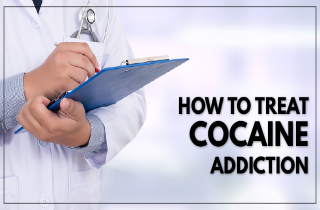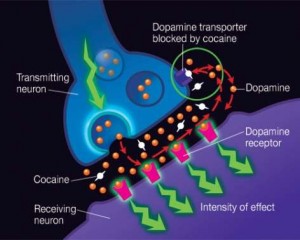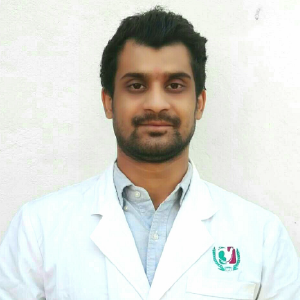ARTICLE OVERVIEW: While there are no FDA-approved medications for treating cocaine addiction, you can stop for good! Talk therapy and behavioral change can help. Learn more about evidence-based treatment for a cocaine problem here. Then, ask your personal questions at the end.
- How Do People Get Addicted?
- Statistics
- Brain Changes
- Signs of a Problem
- Rehab
- Stages of Treatment
- Cost
- Psychotherapy
- Medications
- Am I Addicted?
- Who to Ask for Help
- Next Steps
How Do People Get Addicted?
There is no one answer.
In fact, there are many factors that contribute to drug abuse, from biology to environmental cues. However, cocaine’s addictive qualities make it one of the most highly addictive substances out there. In fact, cocaine affects the brain by increasing the amount of dopamine, the neurotransmitter associated with pleasure and movement, produced in the body. Once you’re hooked on cocaine, it’s hard to stop.
So, what do we know about cocaine? This article published in 2005 in Addiction Science & Clinical Practice. The authors wrote:
We now know that cocaine affects brain cells in a variety of ways. Some of its effects revert quickly to normal. Others persist for weeks after the drug leaves the brain. With repeated exposure to cocaine, these short- and intermediate-term effects cumulatively give rise to further effects that last for months or years and may be irreversible.
So what are these changes? Keep reading for answers.
Statistics
You think you have a problem with cocaine? You are not alone.
In fact, the 2016 National Survey on Drug Use and Health reported that about 867,000 people aged 12 or older in 2016 had a cocaine use disorder in the past year. The numbers break into age classification like this:
- 29,000 adolescents aged 12 to 17.
- 215,000 young adults aged 18 to 25.
- 623,000 adults aged 26 or older.
Additionally, Facing Addiction in America: The Surgeon General’s Report on Alcohol, Drugs, and Health reported that the rates of cocaine overdose were higher in 2014 than in the previous six years (5,415 deaths from cocaine overdose). Each year cocaine ranked second or third among drugs involved in drug overdose deaths. Moreover, according to the 2016 National Vital Statistics Report mixing cocaine with alcohol caused 1,210 overdose deaths.
To avoid the inevitable misery…get help.
Sooner is better than later.
Brain Changes
When cocaine reaches the brain, it acts upon the activity of the dopamine neurotransmitters. It increases dopamine levels in the brain circuits that control pleasure and movement. Normally, dopamine is absorbed via dopamine transporter, but cocaine blocks this transporter and prevents dopamine uptake. This causes excessive dopamine amounts to build up among nerve cells disrupting normal brain communication, and causing ‘high’.
In a 2010 study published in The Journal Of Physical Chemistry, researchers showed that the primary target for cocaine in the human body is dopamine transporter.
Eventually, the brain and the body get used to this state, and accept the presence of the cocaine as normal. So, when the cocaine dose is cut down or when you stop using it, the body itself starts to seek the drug.
Moreover, cocaine affects serotonin level (balances mood) in the brain, and increases the amount of norepinephrine, which controls the body flight and fight response. Thus, the following cocaine effects occur:
- Increased blood pressure.
- Increased body temperature.
- Increased heart rate.
- Increased rate of respiration.
Signs of a Problem
People addicted to cocaine exhibit changes in areas of the brain that are critical to judgment, decision making, learning and memory and behavioral control. To determine a pattern of addiction, watch for initial changes in behavior and appearance. Other signs that you or someone you know may be addicted to cocaine include:
- Drastic weight loss due to decreased appetite.
- Isolation from family and friends.
- Increased amounts of time spent finding and using cocaine.
- Missing work or the inability to hold down at job.
- Restless, agitated, depressed or nervous moods, especially if they are in between highs.
- Poor personal hygiene.
Furthermore, serious addictions will often push someone to engage in illegal activity like theft or prostitution to obtain cocaine. Basically, when looking for a cocaine problem, you’re looking for drastic changes in personality. The drug is so rewarding that people can do nearly anything to get it…and by the time the reward diminishes, the habit is deeply ingrained.
Rehab
Rehab is called “long-term residential treatment” in medical circles. During rehab, staff provide care 24 hours a day, generally in non-hospital settings. It’s a lot like summer camp for adult, with components of counseling, education, and routine built into the day.
The most common treatment model used in most rehabs is the therapeutic community, with planned lengths of stay of between 1 and 3 months. This type of group support focus on the “resocialization” and uses the entire community as active components of treatment.
During rehab, you learn about addiction and take ownership of your behaviors. Through talk therapy, you focus on how you be pro-active in life. Treatment is highly structured and can be confrontational at times, with activities designed to help you examine damaging beliefs, self-concepts, and destructive patterns of behavior and adopt new, more harmonious and constructive ways to interact with others.
A typical day in rehab can look like this:
7:00 AM – 8: 00 AM – Wake-up, breakfast, basic chores
8:00 AM – 9:00 AM – Morning meditation, medication, and nurse checks
9:00 AM – 9:30 AM – Group or activity session
9:45 AM – 10:00 AM – Break
10:00 AM – 11:00 AM – Group therapy session
11:00 AM – 11:45 AM – Group or activity session
11:45 AM – 12:00 PM – Break
12:00 PM – 1:00 PM – Lunch
1:00 PM – 2:00 PM – Individual counseling session
2:00 PM – 3:00 PM – Group exercise & outdoor time
3:00 PM – 4:00 PM – Afternoon medication & nurse checks
4:00 PM – 4:30 PM – Group or activity session
4:30 PM – 5:30 PM – Group or activity session
5:30 – 6:30 PM – Major daily chores
6:30 PM – 7:30 PM – Family therapy sessions
7:30 PM – 8:30 PM – Group therapy session
8:30 PM – 9:00 PM – Social time, phone calls, relaxing.
9:15 PM – 9:30 PM – Nightly medication and nurse checks
10:00 PM – 11:00 PM – Quiet time, reading, homework.
Many rehabs offer comprehensive services, which can include employment training and other support services. Often, people need help with legal counsel or to navigate social services. Research shows that rehabs can be modified to treat individuals with special needs, including adolescents, women, homeless individuals, people with severe mental disorders, and individuals in the criminal justice system.
Stages of Treatment
So, what are the typical stages of getting help for cocaine?
STAGE 1: Thorough Assessment
During this stage, you’ll need to complete the paperwork, while trained staff will evaluate you both physical as well as mental evaluation. Most of the rehab treatments use evidence-based screening tools for addiction. The purpose of this stage is to determine the severity of your substance abuse problem which will help them plan your treatment. These assessments take about 1-3 hours and include:
- A physical exam
- A mental evaluation
- A medical history
- A family history
- Drug testing
- Interview questions
STAGE 2: Medical Detox
Cocaine withdrawal may be hard to overcome. You can experience serious symptoms that require medical intervention. So, treating cocaine withdrawal under medical supervision is always recommended. Usually detox can last up to a week or a little longer.
STAGE 3: Medications
Since there are no medications that are used to treat cocaine addiction, many therapies used for other addictions are implemented here. For instance, disulfiram (used in treating alcoholism) has been hopeful in its efficacy in treating cocaine addiction.
STAGE 4: Psychotherapy
Psychological treatments help people learn how to live without drugs, how to cope with stress, and how to prevent relapse. Most common types of psychotherapy include:
- Behavioral therapy
- Family counseling
- Group therapy
- Individual therapy
STAGE 5: Aftercare
The aftercare program includes counseling sessions that can last several months or years. They also involve recommendations for sober housing or community support group (such as Cocaine Anonymous).
NIDA: Drug addiction treatment reduces drug use and its associated health and social costs.
Cost
Over 14,500 addiction treatment facilities in the U.S. offer medical detox, counseling, and services to people who are diagnosed with addiction disorders. But while there are many facilities available, some can be more expensive than others. For example, residential rehabs that offer 24/7 care and intensive therapy are costlier than outpatient programs. The most common services and their average costs follow.
Detox: According to the Health Services Research the average cost of detox program varies between $6-12K. The final cost depends on your length of stay, use of medications, doctor consultations, and drug testing.
Psychotherapy: This therapy costs from almost free to $150 or more per hour.
Outpatient treatment: On average, outpatient program ranges from $50-$135 per day. 10-12 weeks programs can cost from $3,000-6,000.
Inpatient treatment: Addiction treatment costs from $235-700 per day for inpatient treatment. Cost averages about $20,000 for a 30-day reputable rehab.
Find more information about the cost of addiction treatment here.
Psychotherapy
Many behavioral treatments for cocaine addiction have proven to be effective in both residential and outpatient settings. Indeed, NIDA states that behavioral therapies are often the only available and effective treatments for stimulant addictions. Two popular psychotherapy modalities used in the treatment of cocaine addiction include:
Motivational incentives (MI) By using a prize/reward based system, MI’s have proven successful in helping cocaine addicts to achieve initial abstinence while motivating them to remain in treatment. The trade off? Drug-free urine samples are rewarded with things like gym memberships, movie passes and dinner gift cards.
Cognitive-Behavioral Therapy (CBT) Used primarily to prevent possible relapse, CBT helps cocaine addicts to stay off of the drug and other substances. CBT helps patients by teaching them to recognize, avoid and cope with situations that would have led them to use in the past.
Medications
While the National Institute on Drug Abuse (NIDA) states that currently no FDA approved medications are used to treat cocaine addiction, they hope that a combination of behavioral and pharmaceutical treatments may ultimately prove the most effective. Because there is no medication used to treat cocaine addiction, medication designed for other addictions are being administered and have produced some positive results in clinical studies. Disulfiram, for example, which is used to treat alcoholism has proven to be the most effective against cocaine addiction.
Am I Addicted?
Cocaine has an incredibly high addictive potential, so if you wondering whether you have a problem or not, you probably do.
To assess yourself, just take a look into these few signs:
- Using cocaine daily or even once a week.
- Feeling like you need cocaine to function normally.
- Use of cocaine regardless of negative effects.
- Obsessive thinking about cocaine or cravings for the drug.
- Experiencing withdrawal when you lower the dose or stop.
If you own one or more of these signs, you may need to consult with an addiction professional.
Still not sure?
Check out this drug screening tool by NIDA that can help you figure out whether you have a cocaine problem.
Who to Ask for Help
If you or a loved one is suffering with cocaine addiction, it is not a struggle that needs to be faced alone. There are many options available. Medical professionals have been trained to devote their time and expertise to helping those suffering from this horrible addiction. Who can you go to for help?
You can seek treatment for cocaine addiction from the following professionals:
Cocaine addiction treatment centers or detox clinics. Ranging from 1 to 12 month stays and staffed with addiction professionals, these centers are designed specifically to help those struggling with addiction and are equip with all of the tools necessary to promote success. Detox clinics provide medical staff and physicians who monitor and supervise cocaine withdrawal 24 hours a day on an inpatient basis.
Clinical psychologists or psychiatrists. These mental health professionals specialize in cocaine addiction treatment. Because many addictions are rooted in past problems like childhood trauma or depression, a mental health professional can help patients deal with these issues as well as cocaine withdrawal symptoms. Seeking the expertise of a trained professional can increase your chances of recovery.
Cocaine addiction support groups. Overcoming addiction is a serious task and does not need to be achieved alone. Join a cocaine support group to keep on track and to find a sense of “community”. Cocaine Anonymous is a good place to start.
Your physician. Speak with your physician if you have been taking cocaine and want to get clean. Not only can your physician educate you on the harmful effects of cocaine abuse, but they can often point you in the direction of a clinic or a mental health professional.
Next Steps
Read to quit cocaine for good?
It may be confusing to know when you are ready. Sometimes, you get tired of using constantly, sometimes you don’t like how cocaine is affecting your life. But you need to do these steps:
Step 1: Admit that you have a problem. Get straight with yourself, accept the fact that you have a cocaine problem, and start solving it.
Step 2: Find reasons to quit. Having motivation to change will help you move towards recovery more easy. Let go off your fears, and grab the real things in life.
Step 3: Seek help. Keep in mind that you are not alone in this, and there are many people that can help you. You only need to ask for help from:
- Addiction rehabs
- Licensed psychologists
- Licensed psychiatrists
- Medical detox clinics
- Medical doctors
Questions and Comments are Welcomed!
With dedication and personalized treatment, cocaine addiction can be successful managed so that you can life a productive life. If you have any more questions about cocaine addiction treatment, leave a detailed message below. We try our best to answer each query quickly.
Reference Sources: Drug Facts: Understanding Drug Abuse and Addiction
NIDA: Cocaine: Abuse and Addiction: What treatments are effective for cocaine abusers?
NIDA: Principles of Drug Addiction Treatment: A Research-Based Guide (Third Edition)
US National Library of Medicine National Institutes of Health: Cocaine and Psychiatric Symptoms











Related Posts